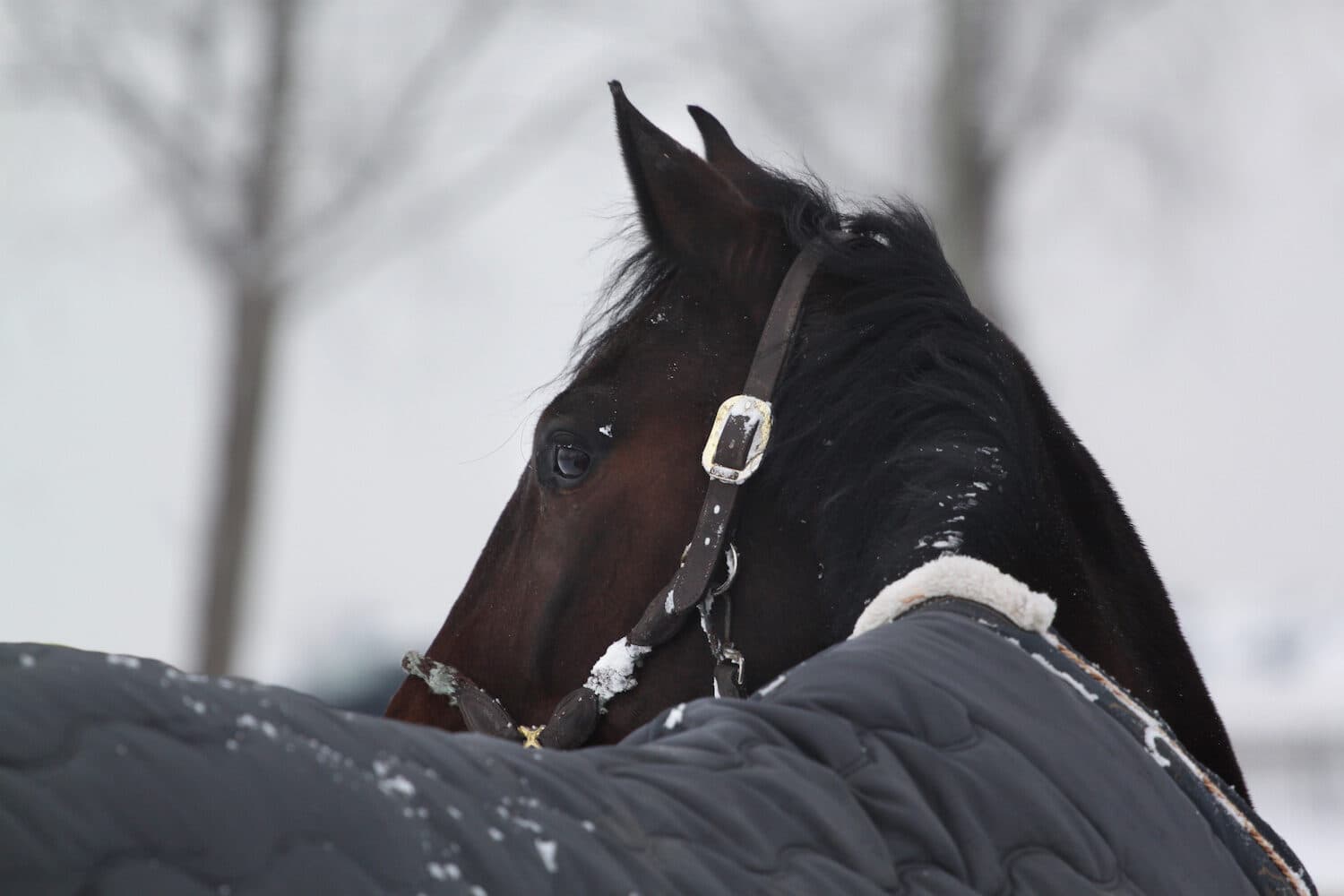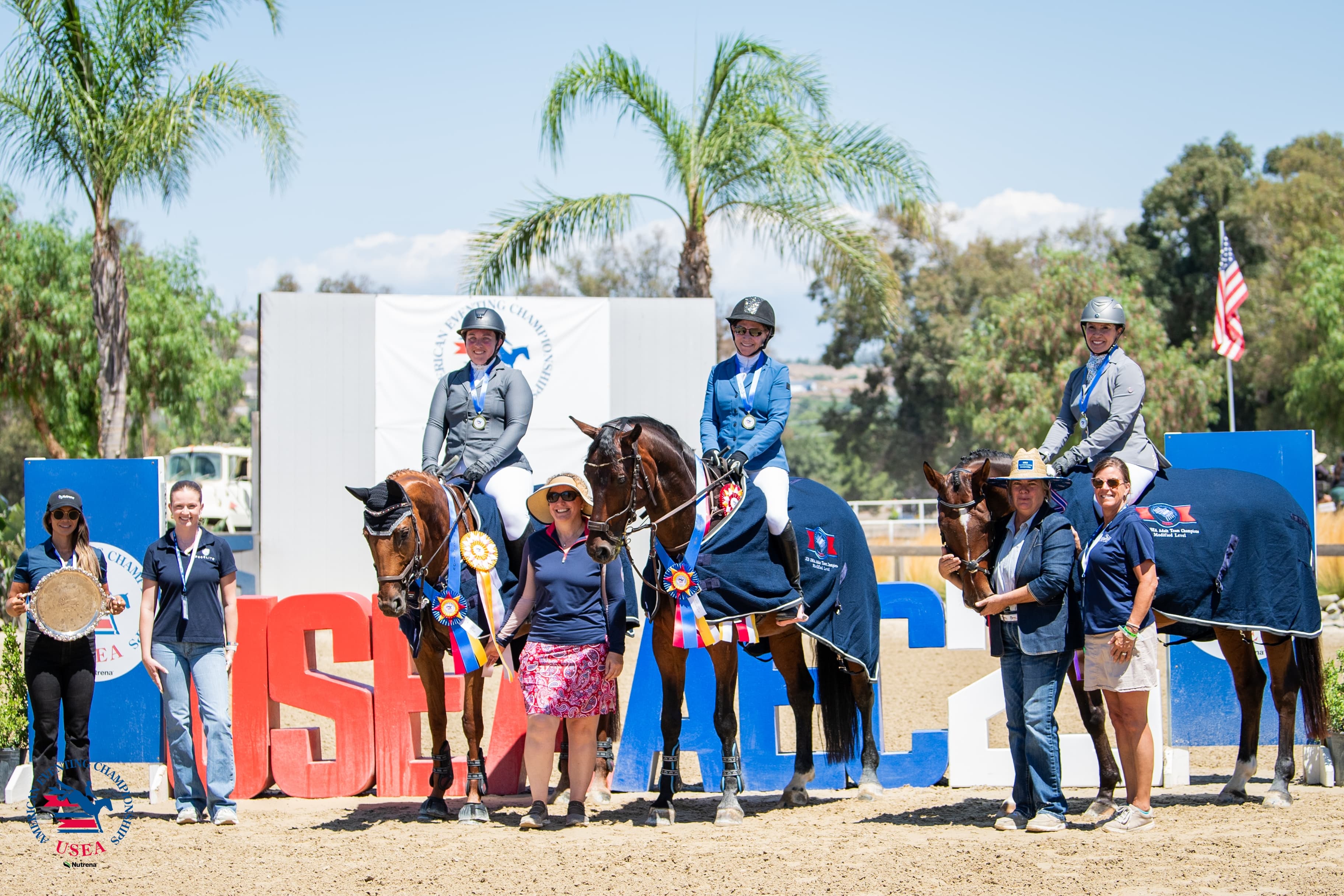Winter Weather Tips for Your Horse

This educational article is brought to you by Standlee Hay Company, the Official Forage of the USEA.
Horses do not like ice in their water. During winter, many owners notice their horses becoming dehydrated, despite the fact that they've provided their four-legged friends all the H20 they can drink. When a horse drinks cold water, it causes their bodies to become colder. This means they have to expend additional calories to heat their bodies back up. Horses will naturally drink less water if it's too cold. Warming water using insulated or heated buckets will allow your horse to drink more. Research has shown that horses drink the most water when the water temperature is between 45 and 70º F.
Fiber plays an even larger role in a horse's diet. Fiber obtained from hay is necessary to keep the digestive system of your horse functioning properly which helps your horse keep warm during cold weather. Without enough fiber, horses literally become possessed beavers. They'll start gnawing the wood off anything from fence post to bedding in order to make up for their lack of fiber.
Horses should be eating at least 1.5% of their body weight in fiber per day. That means about 15 pounds for a normal, 1,000-pound horse. If the fiber is high quality, your horse can consume up to 3% of their body weight per day (30 pounds for 1,000-pound horse). That's why here at Standlee, we carefully manage every aspect of the growing and harvesting process to ensure our fiber is of the highest caliber.
Your horse also needs protein, trace minerals and vitamins. Pastures are often a great source of these essential nutrients for your horse, but during the winter, most pastures will disappear. A common source of supplemental protein, vitamins and minerals comes from fortified grain concentrates. However, when choosing a product, it's crucial that you choose the feed that is intended for your type of horse. Make sure your horse is getting adequate nutrition with the Standlee Feed Calculator.















